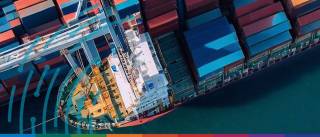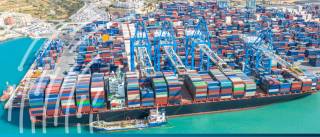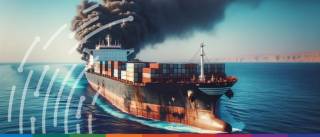The ICC DSI has released their final KTDDE report, finishing their harmonisation of 36 key trade documents.
The maritime industry, often seen as a major contributor to pollution, is under increasing pressure to adopt sustainable practices.
Pacific International Lines (PIL) has become a member of the non-profit organisation, Digital Container Shipping Association (DCSA), to promote standardisation and digital innovation in the container shipping industry.
Lloyds Bank has completed its first transaction using an electronic Bill of Lading (eBL) on the WaveBL trade documentation platform.
Customs compliance obligations have to be met when importing and exporting goods to ensure that the documentation related to the accompanying goods is generated in adherence with the legislation of the importing and exporting countries.
Learn about Lloyds Bank’s collaboration with WaveBL and the benefits of digital trade documentation for global shipping and trade efficiency.
According to officials, the UAE’s non-oil trade reached $952 billion in 2023, breaking previous record highs. Read more about the news here.
Discover how Just-in-Time Delivery can benefit your business & suppliers. Get insights into its core mechanics & implementation strategies.
UNCTAD expresses deep concerns over increasing disruptions to global trade & Jan Hoffmann evaluates the circumstances in a briefing.
A prolonged drought beginning last year has led to a 36% reduction in ship crossings at the Panama Canal, a crucial global trade passage. Panama’s authorities announced on Wednesday that… read more →
To date, 12 shipping companies, in addition to numerous corporates, have suspended activities in the Red Sea, instead choosing to reroute their journeys around the Cape of Good Hope in South Africa.
Sustainability is one of the most used terms in the trade finance industry in 2023. While everyone knows what it means, and most know what the challenges are behind implementing sustainable actions, there is a clear issue with implementing tangible solutions.
Maersk announced a temporary halt on Friday to all container shipments through the Red Sea. This decision was soon followed by Swiss-based MSC and French shipping group CMA CGM on Saturday.
Today, Surecomp announced that CargoX is joining its RIVO™ platform. This partnership enhances Surecomp’s ecosystem, providing customers with centralised access to a range of top-tier electronic trade document solutions to… read more →
In collaboration with the Ukrainian government, Ukreximbank, Ukrgasbank, and DZ Bank, Marsh McLennan has announced Unity, a new insurance facility designed to offer cost-effective insurance for exporting grain and other… read more →
 Australia
Australia Hong Kong
Hong Kong Japan
Japan Singapore
Singapore United Arab Emirates
United Arab Emirates United States
United States France
France Germany
Germany Ireland
Ireland Netherlands
Netherlands United Kingdom
United Kingdom















